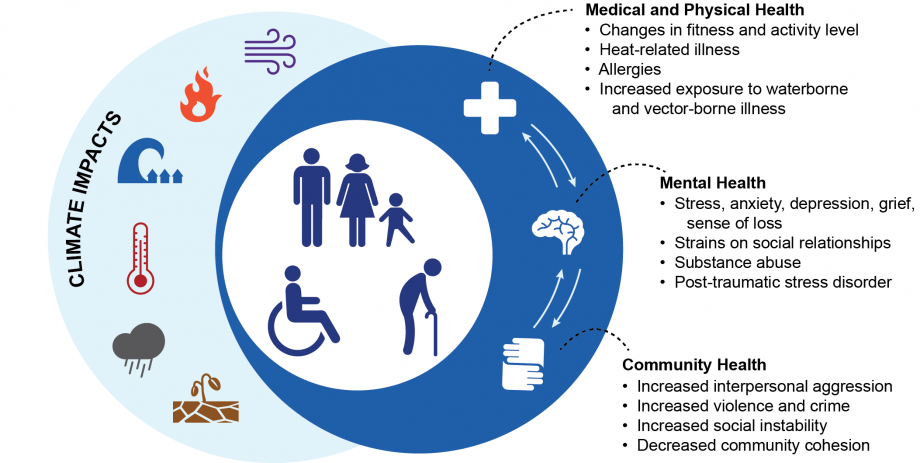The Brain's Functional Organization Reduces Following A Relationship Break Up
By reducing the damages brought on by cost-free radicals (located in pollutants, cigarette smoke and other nasties), these antioxidants have actually also been located to aid in improving symptoms connected with anxiousness and clinical depression. "It's more important to actually stay with any healthy and balanced diet regimen than it is to go as well as try for some aspirational best one that's disgusting or ultimately impossible for you to stay with," he says. But the results obtained more interesting when the scientists began to dig into the information, to see for whom and also under what problems our diet might maintain the tensions away. Eat plenty of healthy and balanced fats, such as olive oil, coconut oil and also avocado. Stay away from processed junk food, such as potato chips, which can hinder your ability to focus.
Unique Course Of Particular Rnas Might Explain Raised Depression Susceptibility In Women
There is presently much dispute over the performance of antidepressants. Making use of food supplements provide an alternative method that has the potential to make a substantial distinction to the psychological wellness of every age groups. A recent Oxford College research study located that antidepressants were much more efficient in treating anxiety than sugar pill. The research was led by Dr Andrea Cipriani who declared that anxiety is under dealt with.
Green already consumed a relatively healthy and balanced diet regimen, yet dinner was commonly unhealthy takeout. Sugar was an everyday must-have, with sweet throughout the day and gelato during the night. Science agrees that food can be a powerful tool for people managing anxiety and anxiousness. These Women Treated Their Anxiousness and also Depression with Food. One record states that joining pleasurable exercise may additionally have a favorable impact on psychological wellness.
How does eating junk food affect your mental health?
Connecting the Mind and Body Well, poor mental health can affect your ability to make healthy decisions and fight off chronic diseases. What's more, neglecting your mental health can lead to more serious health complications such as: Heart disease. High blood pressure.
Collecting data recommends that this might certainly hold true and that diet and nourishment are not just critical for human physiology and also body make-up, however additionally have substantial results on mood and mental wellbeing. There are common beliefs about the health and wellness impacts of certain foods that are not sustained by strong proof and the scientific evidence demonstrating the unequivocal web link in between nourishment as well as psychological health and wellness is only starting to emerge. Existing epidemiological information on nutrition as well as psychological health do not supply information about causality or underlying systems.
What foods are bad for mental health?
Junk food is linked to both moderate and severe psychological distress. Increased sugar consumption has been found to be associated with bipolar disorder, for example, and consumption of foods that have been fried or contain high amounts of sugar and processed grains have been linked with depression.
- The key with sugar is not to quit completely.
- However, consuming complex carbs, such as those found in fruits and vegetables, may actually reduce your risk of these problems.
- Rather, you must intend to improve your ratio of added sugar to natural sugars.
- Specifically, eating way too much sugar might increase your risk for state of mind conditions, including clinical depression.
- The food you eat can additionally have long-term ramifications for your wellness.
- Work with your medical professional or a signed up dietitian to slowly reduce on your sugar intake.
Teenage years (10-- 19 years) is a unique and formative time. Multiple physical, emotional and also social changes, including direct exposure to violence, abuse, or destitution, can make adolescents prone to mental health problems. The repercussions of not resolving teenage psychological wellness conditions reach the adult years, impairing both https://t.co/920cf9LKEZ?amp=1 physical and also psychological health and wellness as well as limiting possibilities to lead fulfilling lives as adults. Half of all mental health problems begin by 14 years old however most situations are undiscovered and untreated.
To remedy this, Dr. Barish-Wreden claims people need to scrap their inadequate nutritional habits. In established countries such as the UK people consume a greater range of foods items than ever-- but it does not follow that they are well nourished. As a matter of fact, many individuals do not eat enough nutrients that are necessary for good brain health, opting for a diet of greatly refined food consisting of artificial additives and sugar.
Collaborate with your doctor or therapist to discover what could trigger your signs. If signs and symptoms return, make a plan so that you understand what to do.
How does mental health affect your overall health?

A lack of essential nutrients is known to contribute to the onset of poor mental health in people suffering from anxiety and depression, bipolar disorder, schizophrenia and ADHD.
Sometimes called "partly hydrogenated oils," they're also in fried foods, pizza dough, biscuits, cakes, as well as cookies. If you do eat fat, make it the "good" kind you receive from foods like fish, olive oil, nuts, https://www.buzzsprout.com/952096/4331984-heroin-rehab-delray-addiction-in-south-florida-transformations-treatment-center and avocado. Recent researchhas revealed that food supplements such as zinc, magnesium, omega 3, and vitamins B and D3 can aid boost people's state of mind, soothe stress and anxiety and also depression and boost the mental capacity of people with Alzheimer's.
What causes poor mental health?
Depression and diet may be related. Several studies have found that people who ate a poor-quality diet — one that was high in processed meat, chocolates, sweet desserts, fried food, refined cereals and high-fat dairy products — were more likely to report symptoms of depression.